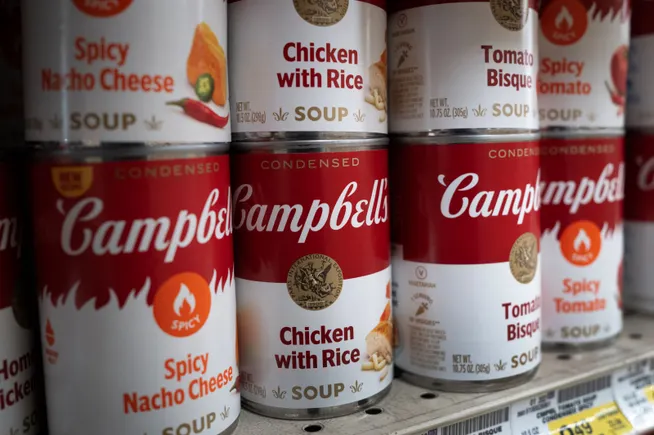
This sound is produced automatically. Please let us know if you have feedback.
Dive brief:
- “The lack of domestic supply of some of the steel derivatives used for canned restricts its ability to completely offset the impact of tariffs,” the company said.
- The food giant expects to reduce 60 % of tariff costs in fiscal year 2026, but more than half of its projected tariff exposure is tied to section 232 of steel and aluminum tasks.
- Beekhuizen added: “There is insufficient capacity in the United States or supply in the United States.” “If it were available, we would buy it locally. We couldn’t do it. So as a result, we have no choice but to import those key raw materials for our product.”
Dive insight:
Campbell has used several reduction strategies to offset tariff costs, including cooperation with suppliers, finding alternative resources, using productivity and savings efforts, and raising prices and raising prices. However, the food company still expects tariff costs to reach about 4 % of the costs sold in fiscal year 2026, which began on August 4.
The food maker, in collaboration with Italian suppliers to combat tariffs, has achieved its success, especially with the brand of pasta sauce.
“We have flexibility with some of the products in Georgia and we work with our partner in Italy with our partner in Italy,” said Beekhuizen. “However, there are only many things we can do around.”
Managers said that while there are some leverage for specific commodities, the limited tin capacity creates a larger challenge that could raise prices and financial stress, especially for meals and Campbell’s drinks.
“We are limited to the place where we can get Tinplate, and as a result, we have to deal with some of the surgical prices, and so it is made in our program,” Anderson said on September 4.
Campbell is also evaluating alternative resources for many of the commodities it imports, including Tinplate, but transferring a long process.
“So sometimes it gets a little longer, especially if you want to change suppliers because we want to make sure we maintain the quality of our product and keep that consumer proposition,” Beekhuizen said in a September 3 income.
This story was first published in our weekly newsletter. Register here